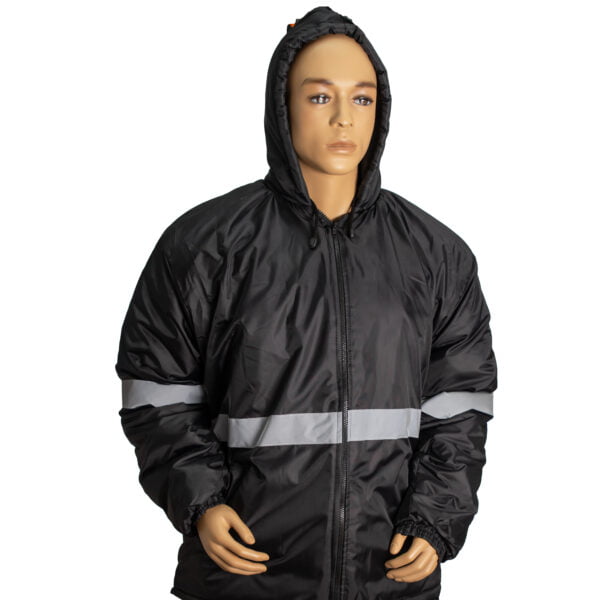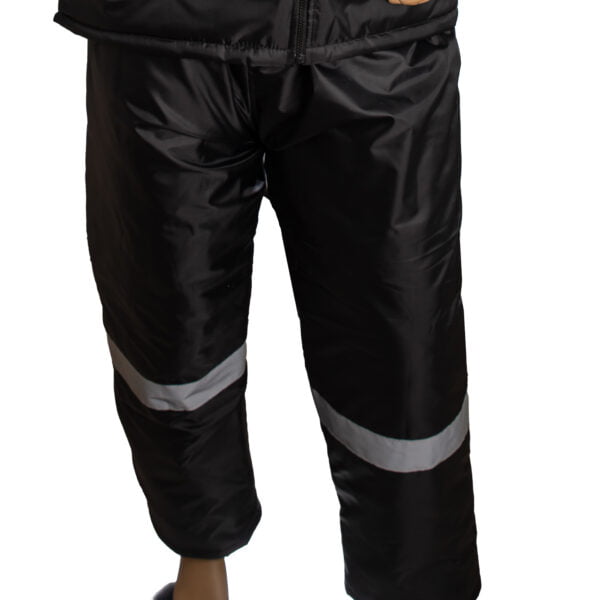The Importance of Freezer Wear in South Africa
Understanding Freezer Wear
Freezer wear refers to specialised clothing designed to protect workers who operate in cold environments, such as freezers and refrigerated areas. These garments are crafted to provide insulation against extremely low temperatures while also allowing for movement and flexibility.
Importance of Freezer Wear
- Health and Safety Compliance. According to the Occupational Health and Safety Act (OHSA) in South Africa, employers must provide a safe working environment. This includes equipping workers with the appropriate protective clothing. Freezer wear helps prevent cold-related illnesses, such as hypothermia and frostbite, ensuring compliance with legal safety standards.
- Comfort and Efficiency. Working in freezing conditions can be uncomfortable and hazardous without adequate protection. Quality freezer wear, such as insulated jackets, thermal gloves, and waterproof boots, ensures that employees remain comfortable, which can enhance productivity and morale.
- Quality Control. In the food industry, maintaining the integrity of products is paramount. Freezer wear not only protects workers but also helps minimise the risk of contamination. Properly fitted and clean clothing reduces the likelihood of foreign materials entering food storage areas.
- Durability and Protection. Freezer wear is designed to withstand harsh conditions. Materials are chosen for their durability and resistance to wear and tear, ensuring that employees are adequately protected throughout their shifts. This long-lasting clothing is also essential for cost-effectiveness in a business setting.
- Customisation and Branding. Many suppliers offer freezer wear that can be customised with company branding. This not only promotes a professional image but also fosters a sense of unity among staff, reinforcing company culture.
Regulatory Framework
The South African Bureau of Standards (SABS) provides guidelines and standards for protective clothing, including freezer wear. These standards ensure that garments meet specific requirements for thermal insulation, water resistance, and durability. Employers must be familiar with these standards and ensure compliance in their choice of protective clothing.
Conclusion
Freezer wear is not merely an optional accessory in the South African food industry; it is a vital component of workplace safety and efficiency. By prioritising the provision of suitable protective clothing, employers can comply with regulations, safeguard their employees, and maintain the quality of their products. As businesses navigate the demands of cold environments, investing in high-quality freezer wear is an investment in both safety and productivity.
Freezer Wear Jacket
- Material: High-Quality Insulated Fabric
- Design: Ergonomic fit with reinforced seams
- Features: Superior insulation, reflective tape, multiple pockets for practicality, durable construction
- Usage: Ideal for freezer workers, cold storage personnel, and outdoor workers in cold climates
Freezer Wear Trousers
- Material: Durable Oxford Nylon
- Design: Ergonomic fit with reinforced seams
- Features: Superior insulation, reflective tape, durable construction
- Usage: Ideal for freezer workers, cold storage personnel, and outdoor workers in cold climates


